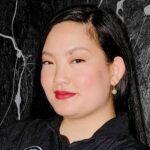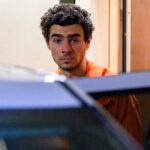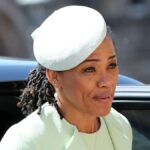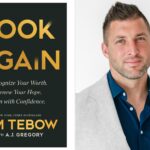John B. Johnson had always dreamed of running the Boston Marathon.
Finally, in Spring 2023, the identity architect from Westlake, Ohio, ran the Cleveland Marathon fast enough to qualify for Boston. But just two weeks later, the 35-year-old was diagnosed with colon cancer. His marathon plans were put on hold as he fought the disease.
Over the past two years, he became friends with his colorectal surgeon at the Cleveland Clinic, Dr. David Rosen. As they worked to eradicate his cancer (there are no signs of it now), they also decided to train for the Boston Marathon. Together, Johnson and Rosen will run the legendary race on April 25, 2025.
“I’ve seen John at some of his most vulnerable, most painful moments, and now to see him so strong and working towards completing a goal that he’s had for a long time is incredible,” says Rosen, 39, Division Head of Colon and Rectal Surgery at Cleveland Clinic Fairview Hospital. “It’s inspiring. It’s a constant reminder of why we in medicine do what we do for patients like John, and it’s just a really fulfilling thing to do.”
This year, Johnson and Rosen are fundraising for the marathon for DetecTogether, an organization that promotes the early detection of colon cancer. Rosen reminds people that the symptoms of colorectal cancer are bleeding, changes in bowel habits, or things just not seeming right with your stool.
“You take someone like John who is completely healthy and young and you feel invincible, something like cancer could never get to you. But it did, and so you just never want to ignore any symptoms if they show up. And if they do, make sure you see a doctor and get a colonoscopy,” Rosen says.
Here, Johnson shares his story in his own words with PEOPLE’s Wendy Grossman Kantor.
I found out that I had cancer two weeks after I ran the Cleveland Marathon in May 2023. I had seen blood in my stools about a month or so before the marathon.
I saw it, I was aware of it. It persisted, and I went to the doctor, my general practitioner. I took pictures, showed her. She told me that I needed to get a colonoscopy.
I didn’t schedule the colonoscopy until after my marathon because everybody assumed that it was just hemorrhoids. I was training to break three hours in the marathon, so I was probably doing the hardest training I’ve ever done in my life. So I was like, “Okay, yeah, maybe that’s what it is.” I wasn’t thinking anything worse. I certainly wasn’t thinking cancer.
I ran the marathon in just over three hours. It was the first time I’d run fast enough to qualify for Boston. I was excited and proud. Then, two weeks later I had my colonoscopy. At about 7 in the morning, after I woke up, the doctor came in and told me that they found a mass — and it was most likely cancer.
It was shocking. I was in the best shape of my life. I was 35 years old. I couldn’t believe it. I asked my doctor, “How should I tell my wife?” Honestly, all I was thinking about was her and my daughter at home. My daughter was just one year old at the time. All I was thinking about was them because when you hear “cancer,” it’s just human nature to think that you could die.
I met my wife — her name’s Sarah Johnson— in college, in architecture school at Kent State. We studied abroad together in Italy and became good friends, and eventually, we started dating. We got married in 2016. We just celebrated the 10th anniversary of when I proposed to her.
My daughter’s name is Vivian Grace. Two weeks after I was diagnosed, we found out Sarah was pregnant with my son, Theodore, now 1.
One of the reasons why I tell my story is because 35-year-olds don’t talk about colon cancer. They don’t talk about colonoscopies. They don’t talk about blood in their stools. And since I’ve shared my story, my friends will actually bring up, “Hey, I had blood in my stools. I’m going to go get checked.” They’re not embarrassed because I was willing to share.
Before that, nobody had ever talked about issues they’re having with their butt. That’s just not what we do.
It was never in my family. I don’t know my father, so I don’t have his side of the family to reference, but DNA testing showed it wasn’t genetic. That was probably the question I was asked the most after being diagnosed. “Did anyone in your family have it?” And the answer is no.
After the doctor told me about the mass, I went home and I told my wife. We both started crying. And thank God that Dr. Mohamed Naem, the doctor who did my colonoscopy, was good friends with Dr. Rosen, a colorectal surgeon at the Cleveland Clinic. Dr. Naem was able to get me in with Dr. Rosen the next day.
Sara and I went to Dr. Rosen’s office and he set us both at ease. He told us, “We’re going to do some tests and we’ll find out what stage it was.” They did a CT scan and MRI. It took probably a couple weeks to get the MRI. That was probably the longest thing I had to wait for. And then they told us that it was stage 2 cancer. It was on my wife’s birthday, July 12th. I remember it because we were going to get tacos.
It was a little further advanced than they originally thought, but it hadn’t spread yet, which was good news. So then they gave me the treatment plan of getting five weeks of radiation five times a week, so just 25 treatments. Then I would get chemo for four months. I got my last treatment on January 3, 2024. When I got my MRI on January 8, the cancer was gone.
Never miss a story — sign up for PEOPLE’s free daily newsletter to stay up-to-date on the best of what PEOPLE has to offer, from celebrity news to compelling human interest stories.
This year, Dr. Rosen and I are running the Boston Marathon. I think I technically started training as soon as I could run again after treatment, which was a couple weeks after my son was born in February 2024.
I wanted to close the loop on this journey. Since I wasn’t able to run Boston after my diagnosis, I wanted to try again. This was a way of being better than I was before the cancer — and just celebrating life.
In many ways, I feel stronger. I feel stronger as a person. A friend of mine called me this morning and told me that his little sister has a brain tumor. And they don’t know if it’s cancerous, but they’re expecting it to be. I would have never known how to navigate that conversation or be able to give advice — but I’d just gone through it. I’m stronger emotionally. I’m stronger spiritually. I’m stronger in every way.
Another reason why I share this story is to give people hope that no matter what, it’s going to be okay. I didn’t like when people said, “Oh, you’re so young. This shouldn’t have happened.” I did my best to stay positive, stay optimistic, and stay grateful — I believe that that had a lot to do with me getting through it.
I think the biggest thing I want people to take from my story is no matter how strong you are or how good of shape you’re in or how young you are, if there’s something that just doesn’t feel right, go and get checked, period. If I didn’t get checked when I did, I might not have a rectum right now. I might have had to wear a bag for the rest of my life. I might not have had the same lifestyle. I might not be alive.
Now, with our sights set on Boston, Dr. Rosen and I text every day about what we’re doing and how we’re moving forward in this training. I know I am not in this alone.
Read the full article here


 Trending:
Trending:







